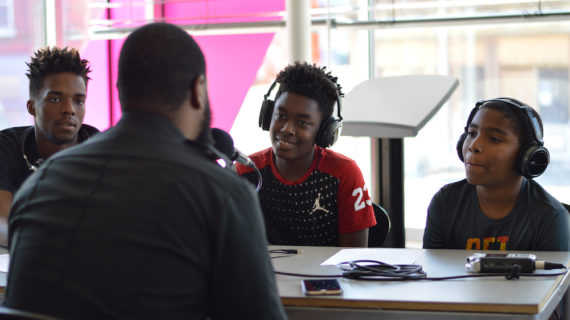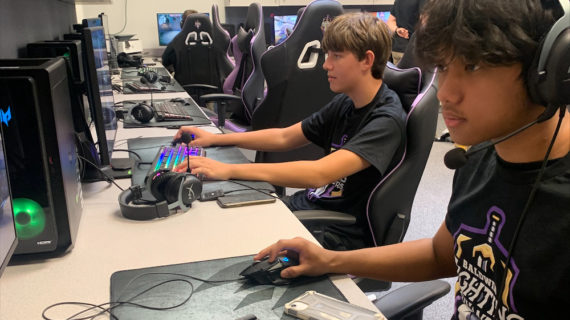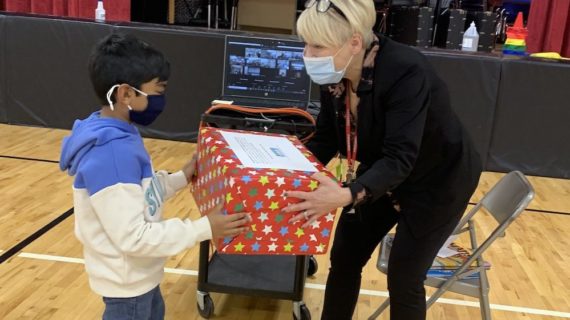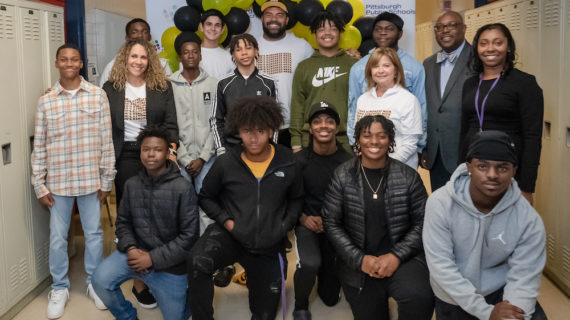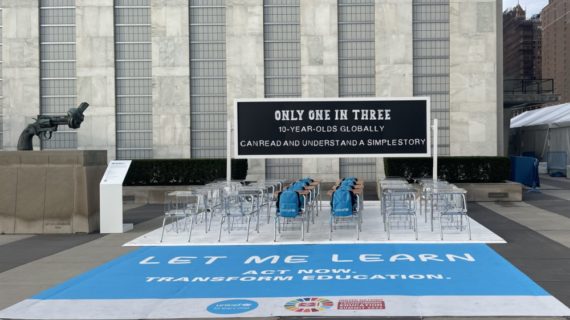
With scientific approaches, Northgate’s MTSS has kids covered on everything from reading to mindfulness
Photo above by Johnny McClung used by permission via Unsplash.
For elementary schoolers in the suburban Pittsburgh communities of Avalon and Bellevue, the system that keeps learning on track operates a bit like an engine quietly humming behind the scenes.
The kids will notice that they’re spending a good bit of time learning to read. But they may not see that their classroom teachers are being trained in the latest research on the science of reading.
Students will also notice that behavioral health is a frequent topic of conversation. They’ll experience regular visits to their school building’s Chill Room and they’ll be free to request a visit there when they need one. But they probably won’t realize just how fully their teachers have been trained in the science of behavioral health. And they won’t realize how many organizations (including local healthcare provider AHN and even the Pittsburgh Pirates) have been involved in staffing and funding the permanent and mobile Chill Rooms that now pop up around the Pittsburgh region.
Northgate wasn’t the first district in our region to implement the Chill program, says superintendent Dr. Caroline Johns, but they were the first to put it in all buildings in their district. This creates an uncommon continuity: In many districts, mental health support is provided by a counselor who drops in at several buildings during each day, or is in a particular building only on certain days.
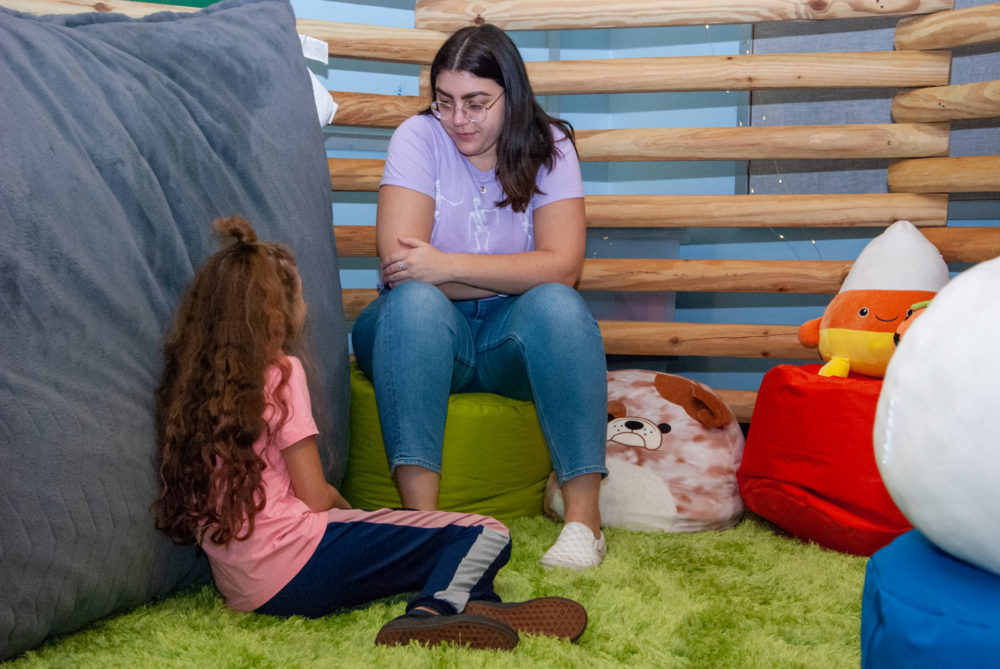
“Our Chill folks are here every single day, all day. They’re part of our faculty. They’re part of the flow of the building. So the kids see them in the hallway. There are opportunities to talk to teachers. There are opportunities for them to interact with the life of the building” says Dr. Chris Caton, the district’s director of curriculum and assessment. “That’s really important because they can understand the context of our students in a way that otherwise wouldn’t be possible.”
Life for kids in Northgate schools also includes enrichment time each day. Some days, a child may work one-on-one with a teacher. On other days they might use digital tools independently, working at their own pace while a classmate works one-on-one with the teacher. Since this enrichment time is built into every day, kids who need extra support in subjects like reading aren’t being pulled out of class or singled out.

This system at Northgate — something the district calls MTSS, or Multi-Tiered System of Supports — also includes frequent conversations between teachers, administrators and behavioral health experts, and a system of frequent assessments and check-ins that makes sure each child is learning and growing.
Through these assessments, which include behavioral mood check-ins that students do regularly themselves, Northgate’s MTSS can throw up clear red flags so that help comes before kids really begin struggling.
“Based on kiddo need, we’re looking at data and having regular conversations and creating schedules where teachers and administrators and specialists and therapists are getting together regularly to talk about kids and escalate them in this tiered systems of support,” Caton says.
“That’s different than what typically happens,” he says, and it “ensures that each child’s individual needs are going to be addressed.”
In many school environments, Caton says, “it can be easy to forget about a kid, to lose a kid. And that’s a terrible thing, right? I really believe that reading, for instance, is a civil right. And we need to ensure that that happens for all of our students. And so we have this system in place to make sure that no one is going to slip through the cracks.”
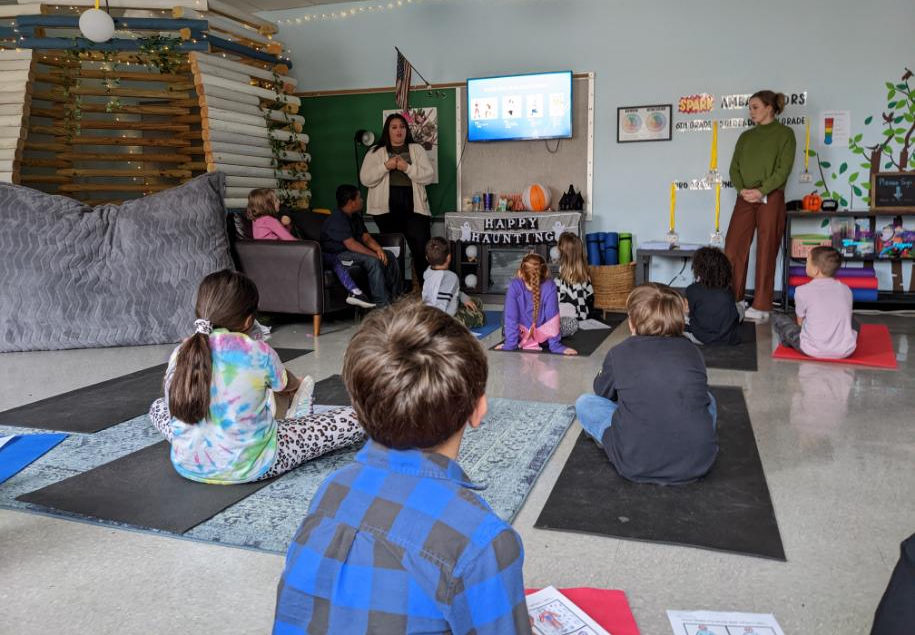
Through the MTSS, “we’re going to identify issues based on our universal screener. We’re going to follow up based on progress monitoring, and we’re going to continue to monitor whether the prescriptions that we put in place are working for the students,” he says. “If your student isn’t growing the way that they really need to to be successful, we’re going to be flexible and change those prescriptions and get them the increasing intensity and time that is necessary for them to be successful. And all those prescriptions are research-based practices that we feel very strongly about.”
The team at Northgate hopes to share their system of check-ins and supports with other districts around western Pennsylvania and beyond. But Caton points out: As important as the system is, it’s the people who make it work.
“Part of it is having systems in place, and schedules in place that allow for the time for people to get together and talk about student needs, to have time building the day to address student needs, and a plan for those students based on the data and the meetings,” Caton explains. “But it’s also about having a staff that cares very deeply. And it’s about having the staff that is necessary. This can’t be done without skilled reading specialists and skilled behavioral specialists. This can’t be done without teachers who have gotten training in science of reading practices.”
“All of those things,” he says, “are important.”
Want to learn more about local schools? Check out the 12 local districts named to the League of Innovative Schools. And stay tuned for an update next week from our partners at KDKA on the subject of school absenteeism.

